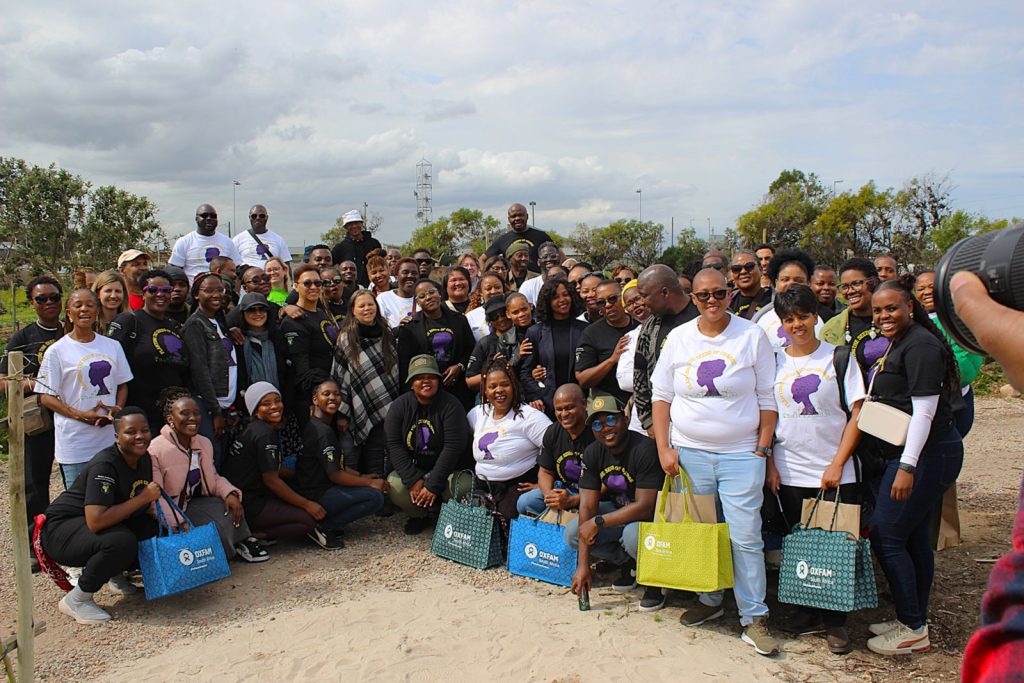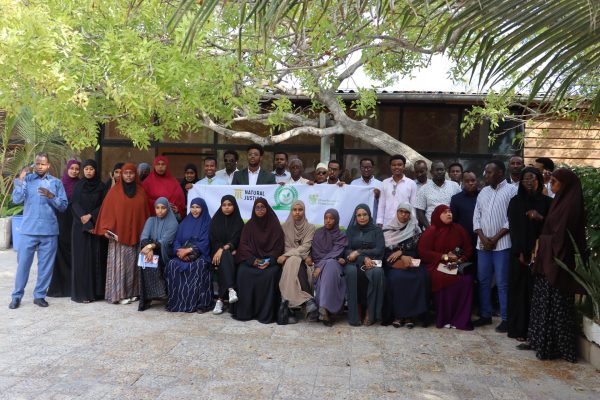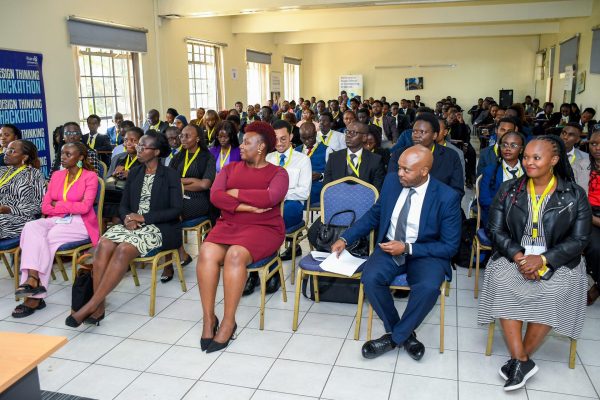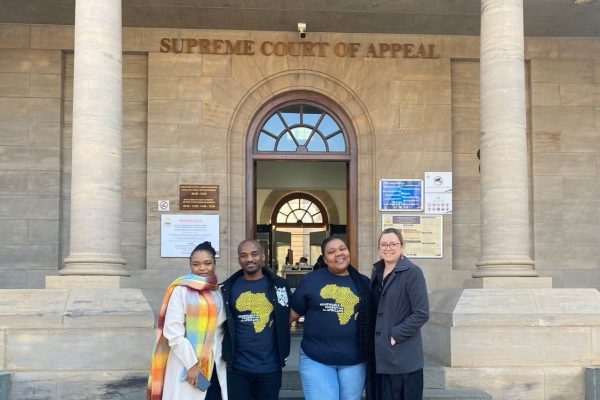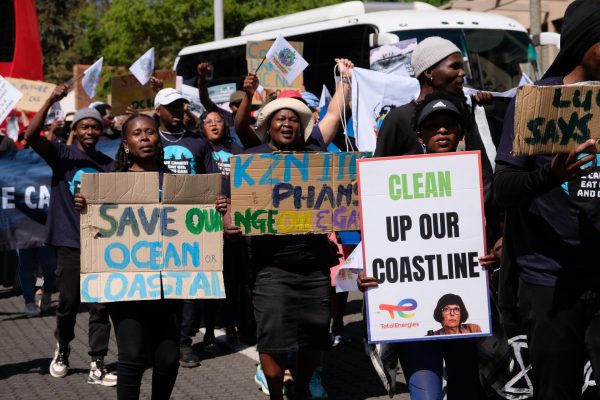As spring blooms in southern Africa, 70 delegates representing a diverse range of stakeholders advocating for climate justice, gathered in Cape Town in early September to talk about the ongoing ecological crisis and its impact on food security systems.
Under the theme, “Climate Justice Indaba and Agroecology Community Learning Exchange”, environmental activists, spent four days digging deep into the key issues surrounding the climate crisis and its effects on vulnerable communities and ecosystems.
A highlight of the indaba included a visit to the Philippi Horticultural Area (PHA). Nazeer Sonday hosted the delegates on his organic farm – a delightful, blooming space in the midst of Cape Town.
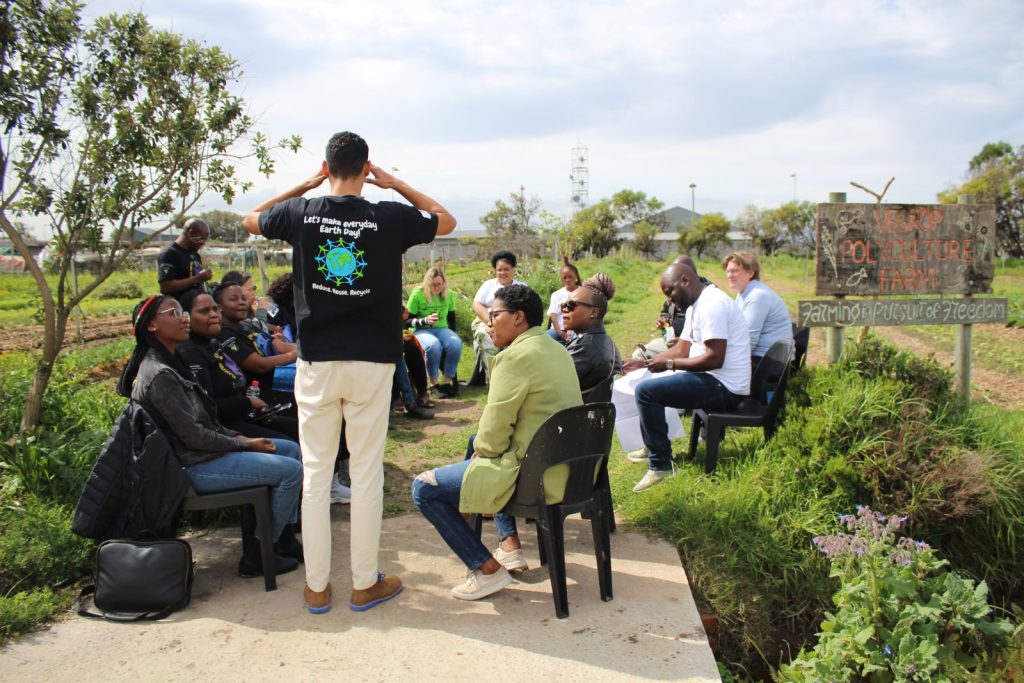
The indaba was a means for delegates to reaffirm commitments to a feminist, justice-oriented transition within agriculture and energy sectors at every level. A practical initiative titled “Sowing Seeds of Sustainability: Community Workshop on Agroecology”, emphasised the critical role of community gardens in fostering organic and sustainable food systems.
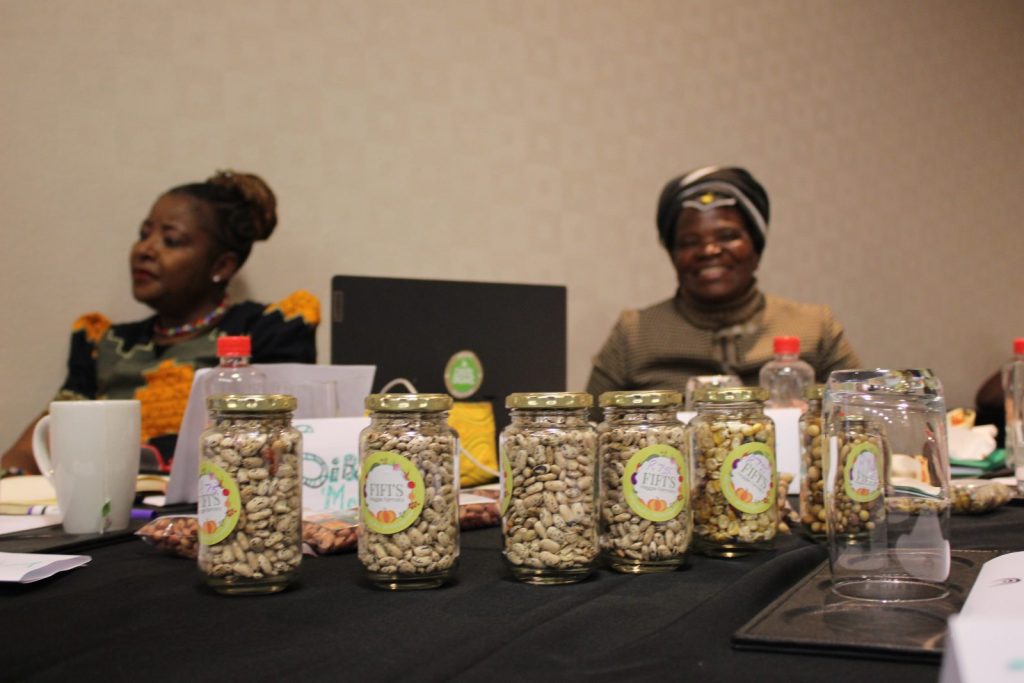
The importance of Indigenous Knowledge Systems within agroecology – from the preservation of organic indigenous seeds to the ways of farming with indigenous plants – to the crafting of policies and laws that reflect the lived experiences of affected communities, was also shared during the knowledge exchange.
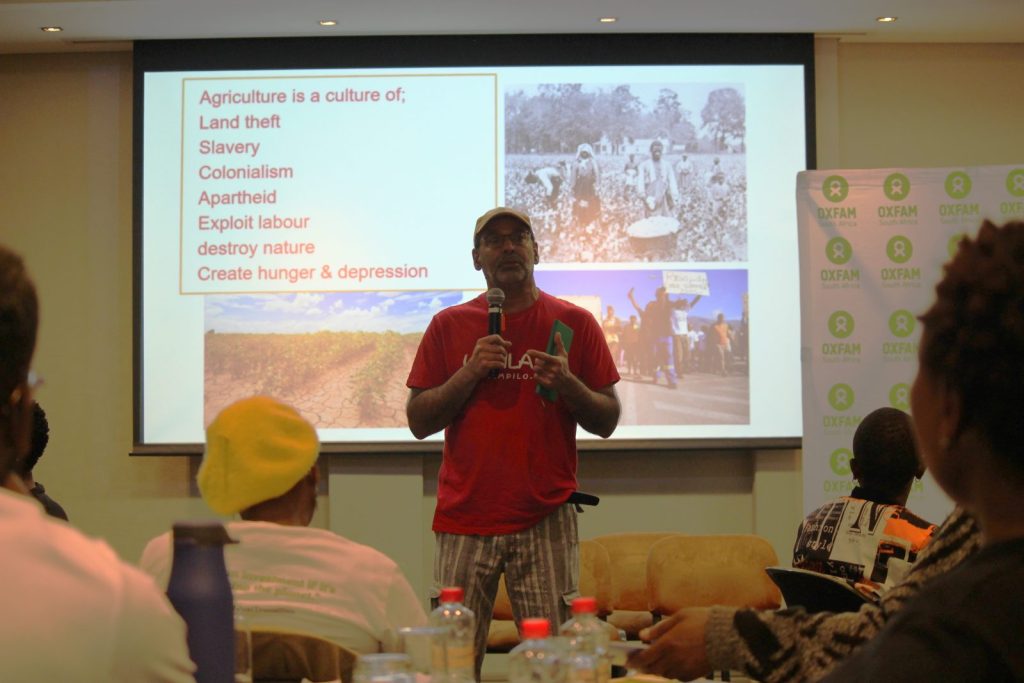
“There is no food without climate and no climate without food,” says Nazeer Sonday, campaign chair of the PHA.
“In South Africa we have limited land available because a lot of our land is semi-arid and not fit for agriculture. We are losing agricultural land at a staggering rate. The land we have for agriculture, the soil is very degraded. We had colonial apartheid on land too – which resulted in poor land use management.”
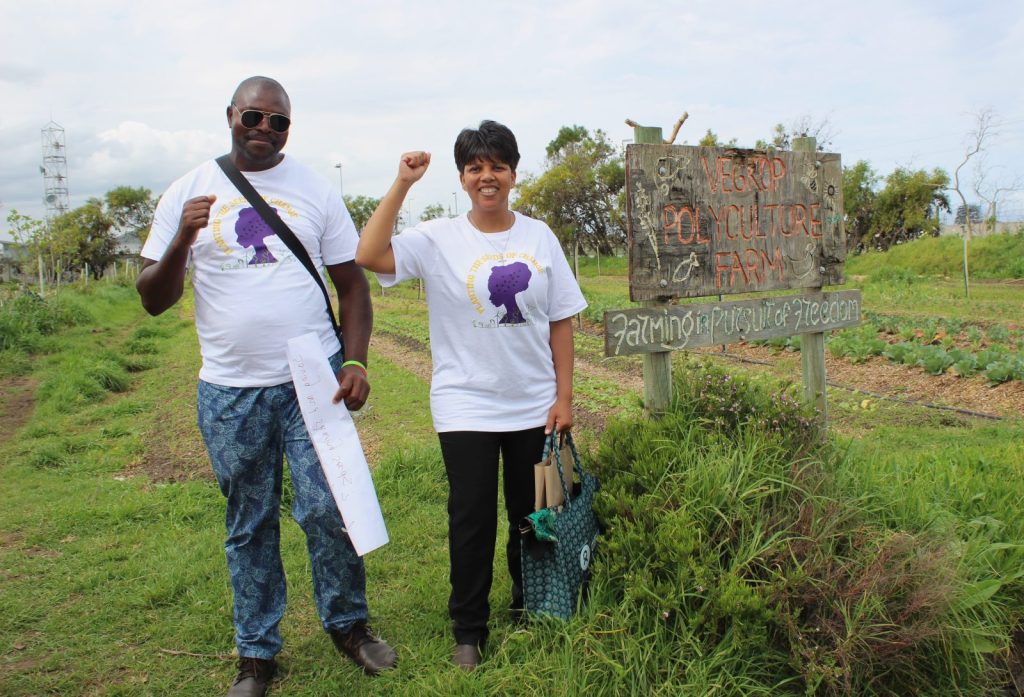
Of course, the preservation of traditional knowledge and indigenous practices extend beyond the agro-ecological world. The protection of various ecosystems must include the land and the seas.
“As fisherwomen, we never had a doctor growing up – we would go to the ocean because the ocean heals us. Now mining companies want to come and want to mine in the ocean. We must rise up and say no to these corporations who take what they want…and it’s why as fisher women, we are saying we are not only fighting for our livelihoods and our climate, but we’re also fighting for our children and for future generations,” said Wendy Pekeur, from Ubuntu Rural Womxn & Youth Movement.
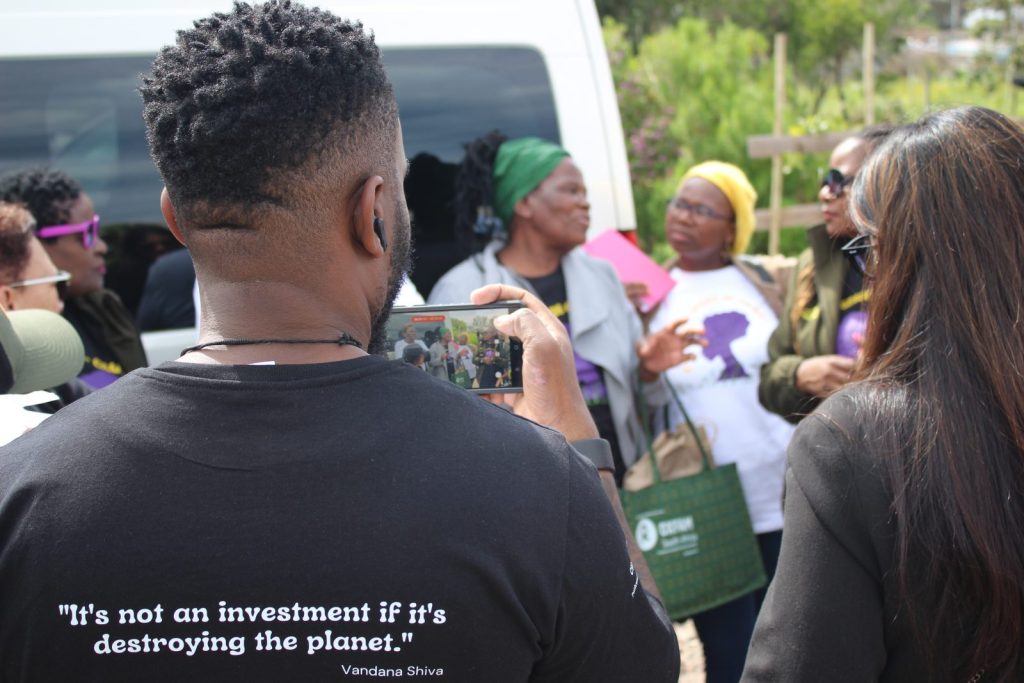
The practicalities of climate and environmental actions are driven not just by the blood, sweat and tears of traditional farmers and fishers, but are heavily influenced by the policy and legal frameworks of countries. It becomes imperative that we advocate for the right regulatory framework at the international level.
Reflections and preparations surrounding the Conferences of the Parties (COP) – such as climate finance, from ‘loss and damage’, ‘concessional reparations’ and ‘carbon credits’ and the Global North’s responsibilities were discussed at the indaba. Some of the delegates will be attending these events, coming up later this year, and advocating for the protection of traditional knowledge, amongst other issues.
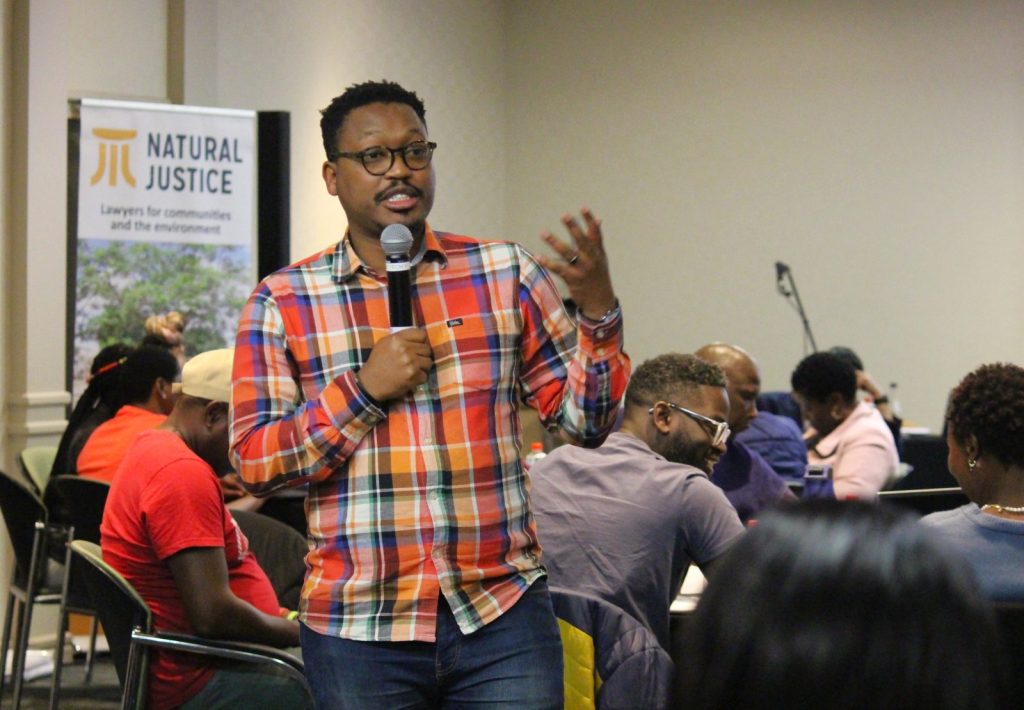
Following the visit to the PHA farm, Nosipho Twala from the Labour Research Service said that the visit left her nostalgic about her childhood growing up in a village in KwaZulu-Natal where her grandmother taught her about nurturing seeds. She was reminded of how important it was to have that knowledge transferred and was inspired to teach people in her community how to compost – something she learnt during her visit the PHA farm.
“I went (to the PHA) feeling like a climate justice activist – I came out feeling like a farmer and I realised I am so many things because going there made me reconnect with my indigenous knowledge.”
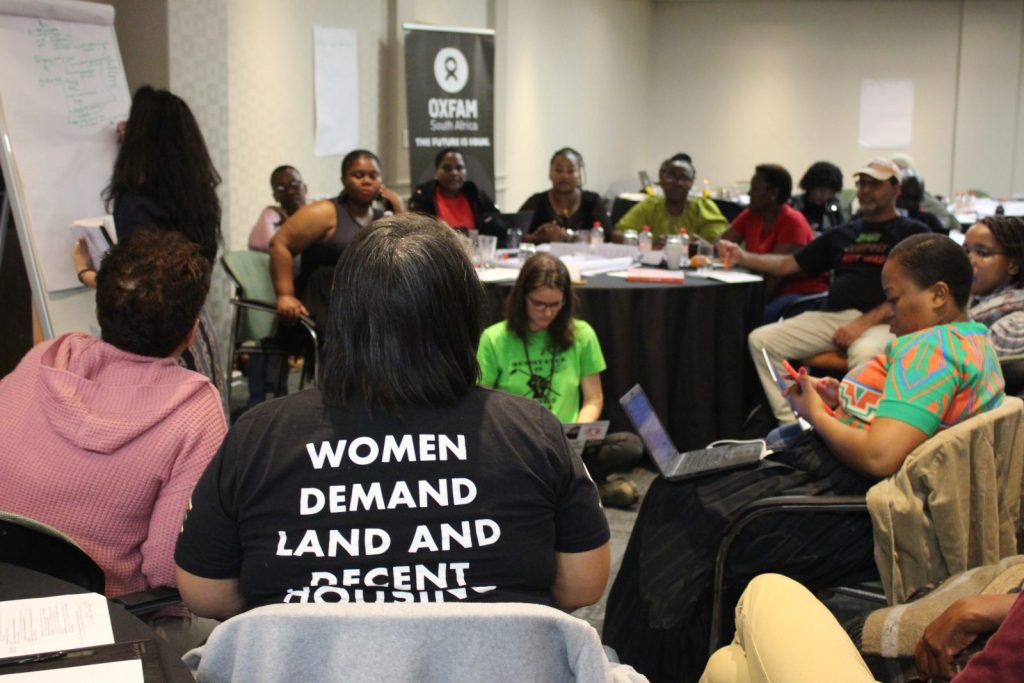
Many ideas and perspectives were shared during the knowledge exchange – a reminder of the power of people-centric laws and policies, community-led initiatives, and inclusive collaborations in driving transformative change.
Together, we can cultivate a climate-just future, where all people and ecosystems thrive and benefit from our natural resources.

